
Positive ocean news: April edition
From a newly discovered seagrass bed and coral reef to the release of a captive whale, we've rounded up some positive ocean news stories from April to celebrate the wins for our seas.
900 acre seagrass bed discovered in Cornwall
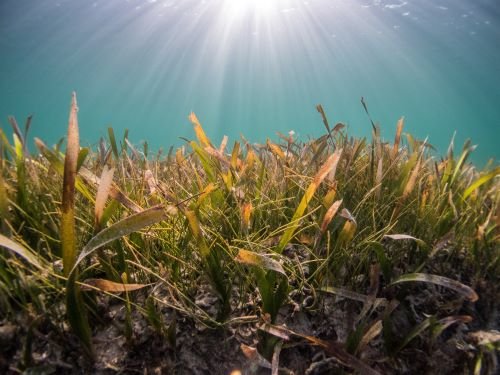
Credit: Benjamin L. Jones/Unsplash
One of the largest seagrass beds in the UK has been discovered in St Austell Bay, Cornwall.
Despite covering only 0.1% of the seafloor, seagrass is one of the planet’s largest carbon stores and is home to a variety of marine life, acting as a nursery and feeding grounds for many species.
Volunteer divers recorded 122 species of plants and animals living in the newly discovered seagrass and maerl beds, highlighting the importance of the bed to local biodiversity.
Read the full article on the BBC News website
Hearing date announced for landmark sewage legal case

Credit: Andrei Metelev/Shutterstock
The High Court has announced a date for a hearing which will see co-claimants such as the Marine Conservation Society challenge the UK Government on its failure to address mass sewage dumping in English waters.
The hearing, in which co-claimants will be calling on the UK Government to amend its Storm Overflows Discharges Reduction Plan and bring forward deadlines for water companies to stop dumping sewage in English waters, will take place between the 4th and 6th of July 2023.
Read more here
Milestone reached as 220 tonnes of plastic removed from ocean
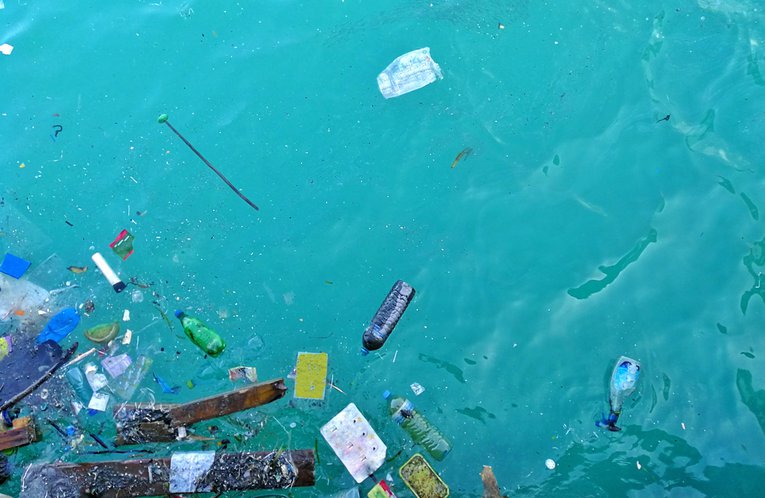
Credit: Mranaked via Shutterstock
The Ocean Cleanup has reached a milestone of removing 220 tonnes of plastic from the Great Pacific Garbage Patch, the largest accumulation of ocean plastic in the world.
Located between California and Hawaii, the Great Pacific Garbage Patch is estimated to be 1.6 million square km – three times larger than France.
The Ocean Cleanup has completed its first extraction of 2023 in the area, in which trillions of pieces of plastic have accumulated. 6,230kgs of plastic were extracted, bringing the total of plastic removed from the Great Pacific Garbage Patch by the organisation to 220 tonnes.
Read more on the Good News Network website
Deepest fish ever recorded
The species, which is currently unknown, is a species of snailfish called Pseudoliparis. The fish was recorded in the Izu-Ogasawara trench off the south-east of Japan, where two other snailfish were later recorded swimming at 8,022 metres.
The footage was captured by baited cameras, which were used as part of a decade-long project exploring the world’s deepest fish populations. The fish recorded were juveniles, which tend to swim at deeper levels than adult snailfish.
Certain species of snailfish can live at such great depths, in which the pressure is 800x greater than the ocean surface, due to adaptions such as having a gelatinous layer instead of scales and having no swim bladder.
Read more on the Guardian
England to ban plastic wet wipes

Credit: Natasha Ewins
The UK Government has announced plans to ban wet wipes containing plastic in England, as part of its plan to improve water quality.
BBC research found that in 2021, around 90% of wet wipes contained plastic, but campaigning by organisations such as the Marine Conservation Society has led to several high street retailers taking action, with Boots and Tesco banning plastic wet wipes from their stores last year.
With around 11 billion wet wipes used every year in the UK alone, many of which end up in the ocean, the Marine Conservation Society has been calling for government action on a ban in wet wipes containing plastic for years and worked with MP Fleur Anderson to raised a Bill to do so in 2021.
Read more on the BBC News website
Pristine deep-sea reef discovered in Galápagos
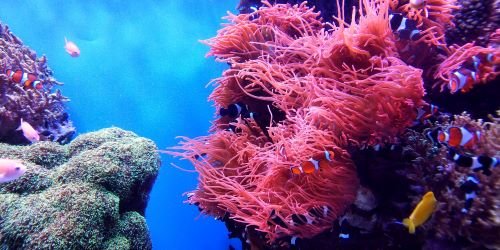
Credit: Li Fei
Scientists have discovered pristine deep-sea coral reefs in the Galápagos marine reserve.
In a previously unexplored area of the reserve, 600m underwater, coral reefs in pristine condition and boasting an array of marine life such as octopus, lobsters, fish, sharks and rays were found.
The discovery offers hope that coral reefs can still thrive, despite ocean acidification and rising sea temperatures. It also demonstrates the benefits and impact of having protected marine areas, and can be used to promote the creation of similarly protected areas elsewhere.
The reef can be monitored over time to provide insight into how climate change impacts ocean ecosystems and how they evolve to cope with changes in conditions.
Read more on the Guardian website
Orca whale set to be released after 52 years of captivity
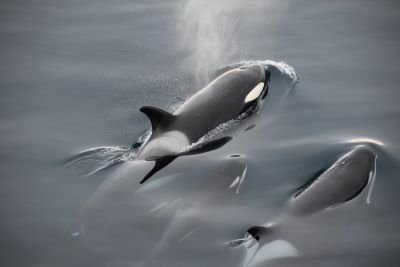
Credit: Nitesh Jain
Lolita, an orca whale which has been in captivity at the Miami Seaquarium since 1970, is set to be returned to the wild.
Lolita was removed from her mother and seven siblings and brought to the Miami Seaquarium, where she lived in the world’s smallest orca tank. While there, she performed for visitors, until falling ill last year.
Now, 52 years later, plans are in place to release Lolita back into the Pacific Ocean, where her mother, Ocean Sun, is still believed to live.
Plans include transporting Lolita to an ocean sanctuary by plane, where she will be under 24-hour care, learning to catch fish and building up her muscle strength to survive in the wild.
Read more on the Euronews website
Reef laid to prepare for oyster restoration in River Hamble
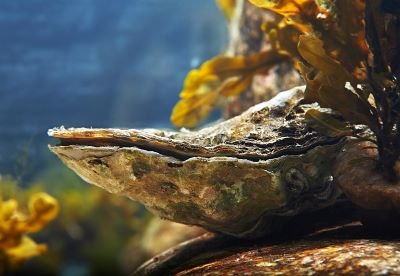
Credit: Pix Box
A reef has been laid in River Hamble, to prepare for the introduction of 30,000 oysters to the Swanwick area.
The reef, covering 2,500sq miles, is the second reef of its kind to be laid as part of the Solent Seascape Project, which aims to restore marine habitats.
Acting as a habitat for the oysters, it is hoped that the reef will help kick-start the population of native oysters in the river, which will span generations and spill into other areas nearby. The reef also offers biodiversity gains, attracting other marine life to the area.
Read more on the BBC News website


